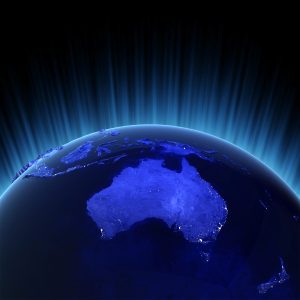What does the concept of “national defense” mean in the current era? Is national defense merely concerned with the threat of physical attack on a country’s territory? Or is it a broader concept that sees the maintenance of prosperity, values and principles, and way of life as equally important?
This has become a central debate in Australia’s foreign policy circles. The Lowy Institute’s Sam Roggeveen through his book “The Echidna Strategy” has taken the view that national defense should simply be based on the threat of physical attack, and therefore Australia’s geography, augmented with a few spiky provisions, is sufficient to guard against threats.
The Australian government, however, has taken another view. With its new National Defense Strategy (NDS), Canberra made it clear that preserving Australia’s economic interests and how Australia lives and conducts its affairs is equally as important as warding against traditional military threats. For this, Australia’s “defense policy and activities to be better coordinated with Australia’s broader statecraft.”
In launching the new strategy, Defense Minister Richard Marles made it clear that its objective was to “resist coercion and maintain our way of life in a much less certain region and world.” Marles stressed that Australia is economically connected to the world, and that through its trading linkages it has a number of key exposures – specifically Australia’s access to crude oil. Most of the oil imported into Australia is refined in South Korea, Singapore, and Malaysia. Marles stressed that Australia is “literally dependent” on the sea lines of communication between these countries.
This makes conditions in the South China Sea a central national interest, and China’s persistent demonstration that it has no intention of abiding by the United Nations Convention on the Law of the Sea (UNCLOS) in the region a considerable threat. The South China Sea may be far from Australia’s shores, but it is very close to Australia’s way of life.
The NDS states that the defense of Australia relies on not only the ability to defend Australia itself, but also its immediate region – which is now defined as the Pacific, Southeast Asia, and the Northeast Indian Ocean. Of course, this is far beyond Australia’s unilateral capabilities, but it signals Australia’s willingness to be part of a web of alliances and partnerships that can build collective security in these regions, and preserve the rules-based order from revisionist and belligerent actions. The central element of this projection is AUKUS, which is intended to significantly increase Australia’s blue water reach.
Even with the addition of nuclear-powered submarines Australia would still be far from a major military power. But maybe it doesn’t need to be. As opposed to Roggeveen’s Echidna Strategy, Australia may be pursuing a frilled-neck lizard strategy. This would involve Australia giving the impression that it is a more fearsome actor than its actual capabilities. For this to be successful it is only the seeds of doubt that need to be planted. To weaken an adversary’s confidence, Australia needs to powerfully project its own. With its value being psychological, AUKUS may already be proving its use – the intent alone provides the extended frill and ominous posture.
Where this becomes more complicated is in the realm of cyber, which the NDS highlights as a considerable concern. The defense of Australia is not solely about the country’s material standards of living. Australia’s political and social structures are considered indispensable – and these are under threat from cyberattacks and disinformation. These are threats that do not target countries through traditional military means. Mostly they don’t target militaries at all, but in the case of disinformation, they target civilians, seeking to undermine trust and social cohesion.
Marles highlighted that “the optimistic assumptions that guided defense planning after the end of the Cold War are long gone,” yet the NDS is not only built on a clear-eyed understanding of the geopolitical environment Australia faces. Its platform is one of what Australians expect from their government: the defense not only of Australia’s shores, but its way of life.
There are, of course, far more powerful states in the region, and a state in China that seeks to build a more hierarchical system. But the kind of submission Beijing expects is a non-starter for most Australians (former Prime Minister Paul Keating aside). It is therefore the duty of the Australian government to find solutions that prevent this from occurring. The NDS makes it clear that developing the power to project is Australia’s only option.

































